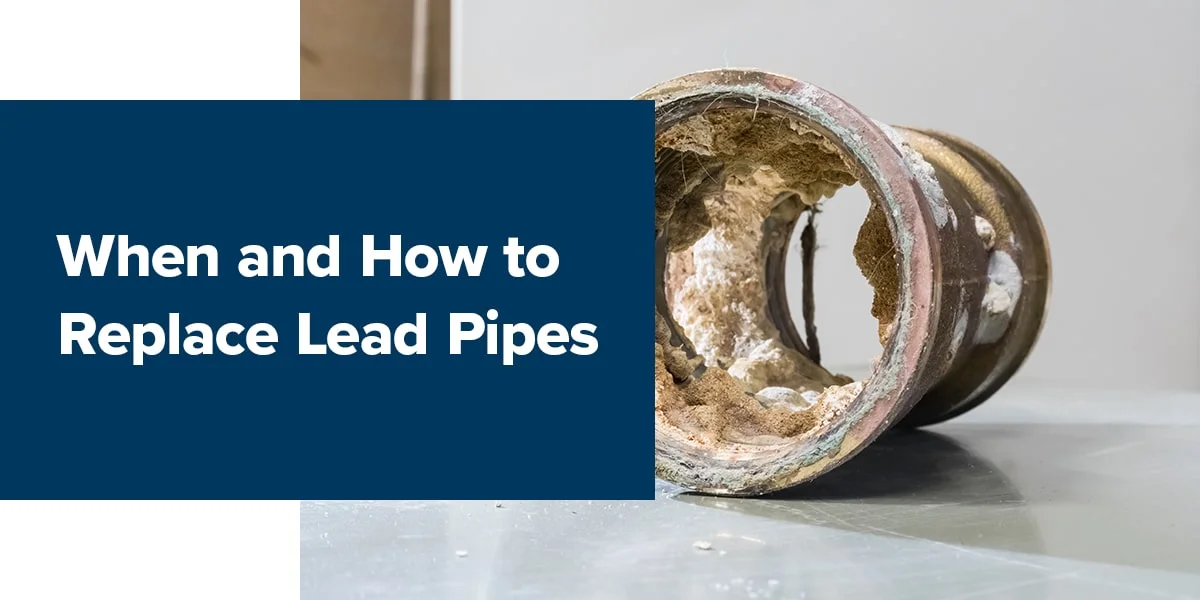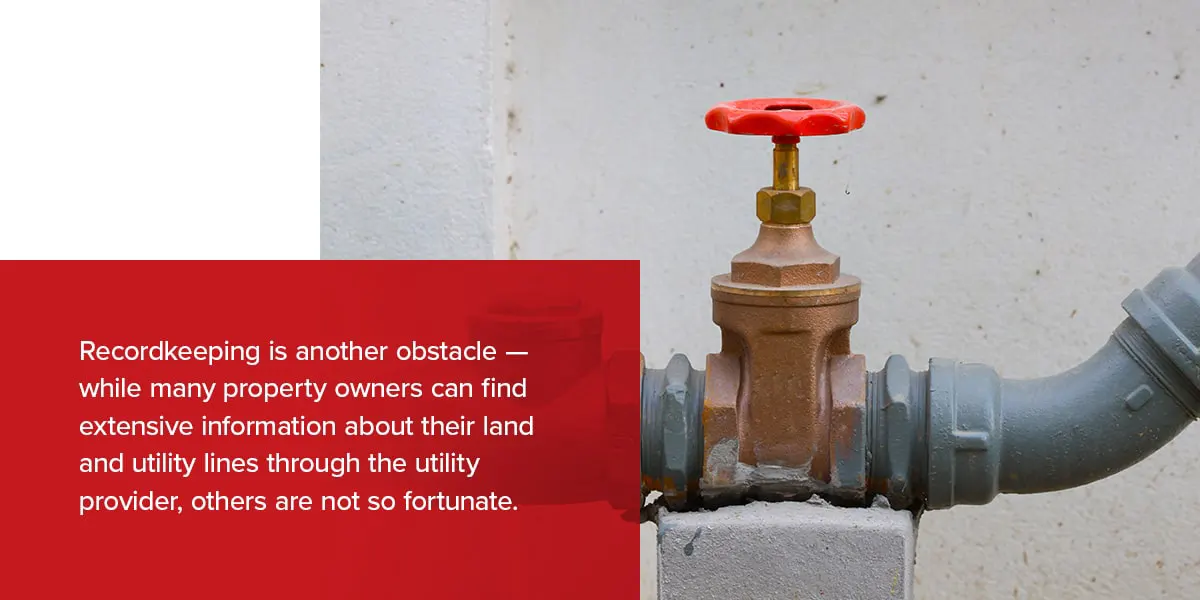
Lead pipes are among the most insidious plumbing problems. Why? Because we did it to ourselves. Up until the 1950s, builders were installing lead pipes into homes. We have already learned that any amount of lead is harmful to the body. It attacks our organs and our minds and can lead to serious health conditions. It is important we replace these pipes now once and for all and get lead out of our lives. The question is — how?
Avoiding Lead Pipe Problems
Once wastewater leaves your home, it either goes to a treatment plant or enters a septic tank on your property where it is contained while microorganisms break down solid matter, leaving the remaining liquid to be discharged. Discharged wastewater, called effluent, should never come into contact with non-septic water. Old or damaged septic systems can lead to groundwater and surface water contamination, taking all the lead from corroded lead pipes with it.
Some of the lead pipes in our homes are exit-only. They run from drains or to sewers, and people are unsure they are a big enough risk to replace. Before you make up your mind, ask yourself what happens with all of that wastewater. Where does it go? What does it do? At the same time, others wonder how much lead these pipes can really be contributing to pollution. If it's just a bit of lead, isn't that safe? Isn't it safe when our water quality rating through the city says levels are within normal?
This is a complicated question, but to start with the pipes themselves, they were only ever intended to last roughly 40 years, meaning the lead pipes in your home are at an increased risk for corrosion. Lead can have harmful effects on people, the environment and our communities:
- Health: According to the Environmental Protection Agency (EPA), lead pipes in homes or homes connected to lead service lines are the most common causes of lead in drinking water. Lead exposure can cause extensive health problems ranging from stomach upset to brain damage and cardiovascular, reproductive and kidney complications. It is especially dangerous for children of any age and pregnant women.
- Environment: Lead-based plumbing is one possible source of lead-contaminated groundwater. Since groundwater is the foundation of many ecosystems, lead poses a significant risk to different animal and plant species.
- Community: Contaminated water can infiltrate community spaces, like public boating, swimming and fishing spots. Backflow or ground seepage near private septic tanks can even create an unsafe area on your own property.
Replacing lead pipes is the only way to avoid lead pipe problems. Mr. Rooter of Oneida works with licensed plumbers who are licensed by Onondaga County for all kinds of plumbing work, including lead pipe replacement. It may be in your best interest to hire professionals for the job. We have the experience and tools needed to do this job safely, and our financing programs are second-to-none.
Staying Safer in the Meantime
Maintaining plumbing on your personal property to prevent and identify corrosion is a great first step, but the only long-term way to protect our homes and communities from lead poisoning is to replace all lead pipes. This process is far from simple, as up to 10 million homeowners in the United States still get water from lead service lines (LSLs), which connect main lines on the "public side" and individual property's water lines on the "private side."
Communities nationwide struggle to identify who owns LSLs — the individual property owner or the public utilities — and which party is responsible for the expensive replacement process as a result. Some places have tried to mediate by performing partial LSL replacements, but this actually ended up increasing lead levels in drinking water. Full replacement of all LSLs and connected lead pipes is essential.
Record-keeping is another obstacle — while many property owners can find extensive information about their land and utility lines through the utility provider, others are not so fortunate. Many, if not most, homeowners are not even aware they should be concerned about the possibility of lead LSLs. Many communities have developed programs to educate homeowners and raise awareness, and 17 states currently have policies to support community-driven LSL replacement initiatives. Federal funding is also available in some cases.
Unfortunately, removing lead from American homes will be a lengthy process. There are ways you can stay safer now, however, from lead and other contaminants. Follow these plumbing tips and maintenance suggestions to improve your water's quality:
- Identify your lead pipes: It is relatively easy to find your lead pipes. They are often located behind shower or tub access panels, under sinks or in the basement. The pipes tend to be thinner than traditional materials and dull silver. Magnets also will not stick to lead. If you do know if you have lead pipes, your local water utility may have more information about your property and can connect you with any local programs for LSL replacement.
- Run the water several seconds before use: Water sits inside your pipes overnight, and as it waits, it picks up pollutants in the water pipes. Running your faucet for several seconds clears that old water out of the line and introduces a somewhat cleaner supply.
- Use a high-quality water filter: You can find units for use with your home's whole supply, those that screw onto faucets or pitchers and cups that filter water from the tap. Just be mindful of what kind of filtering your device will do. Some of the most popular products, like Brita and Pur, are not effective at removing lead from drinking water.
Call Mr. Rooter for Lead Pipe Replacement or Expert Advice
Corroded lead pipes negatively impact your home and family's health, and the problem could be more extensive than you realize. Before you decide lead is not a problem in your home, call in a professional. You may be surprised to find you are already being affected.
You will also learn about the latest financial products aimed at homeowners concerned about rooting this danger out. For more information or to schedule an appointment, call Mr. Rooter today or contact us online.

